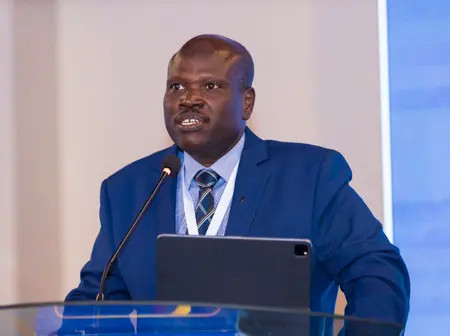Parliament’s Public Investments Committee on Commercial Affairs and Energy (PIC-CA&E) has raised concerns over a Sh30.9 billion debt owed to Kenya Power and Lighting Company (KPLC) by the government as of June 2024.
The issue came up during an Energy Sector Roundtable meeting attended by senior officials from the National Treasury, the Ministry of Energy, the Energy and Petroleum Regulatory Authority (EPRA), KPLC, the Rural Electrification and Renewable Energy Corporation (REREC), and the Kenya Electricity Transmission Company (KETRACO).
According to Auditor-General reports covering 2018/19 to 2022/23, persistent load-shedding—especially in rural and off-grid areas—has slowed progress toward reliable and affordable electricity, hurting socio-economic growth.
National Treasury Principal Secretary Dr. Chris Kiptoo told MPs that the Rural Electrification Scheme (RES) deficit had grown from Sh9.2 billion in 2008 to Sh30.9 billion in 2024, though it was reduced to Sh25.33 billion by June this year.
To clear the debt, the Treasury has proposed increasing budget allocations from Sh261 million to Sh1.66 billion in the 2025/26 financial year, along with a five-year repayment plan funded through EPRA tariff recoveries. This could cut the debt by Sh7.3 billion in the next year.
Committee Chair David Pkosing also flagged concerns over 56 KPLC-operated mini-grid stations—30 of which are hybrid diesel/solar—that are struggling due to faulty lithium batteries. REREC is set to take over the stations and replace the batteries at a cost of Sh5.2 billion over two years.
MPs opposed a Treasury proposal to divert Sh1 billion from other public utilities to reduce the RES debt. Soyi MP David Kiplagat argued that electricity should be treated as a social necessity, suggesting a small levy on fuel or diesel to raise funds without cutting other essential services.
Pkosing stressed that restoring the 13 completely non-functional mini-grids was an urgent priority, noting that REREC’s replacement plan already had clear timelines.
The session also turned tense as the Committee questioned Kenya Electricity Generating Company (KenGen) over alleged irregular recruitment.
KenGen Managing Director Eng. Peter Njenga was accused of arriving unprepared to address audit queries for the 2020/21 to 2022/23 financial years.
Auditor-General reports showed that in 2020/21, KenGen hired 10 employees—four of them graduate engineers—without advertising the jobs, instead sourcing candidates from its internal database. A similar process was used to hire 28 more engineers later that year.
Njenga said the urgent recruitment was to meet contractual drilling demands in Ethiopia and Djibouti, and that the company’s policy allowed sourcing candidates from its database. He claimed that extensive interviews, certificate checks, and medical examinations were conducted.
However, MPs were not satisfied. Pkosing demanded full details of the Ethiopia–Djibouti contract, the list of all 38 hires in 2021, and the name of the MD at the time. He also questioned Njenga’s earlier claim about using an external recruitment agent, saying evidence suggested otherwise.

Leave a Reply